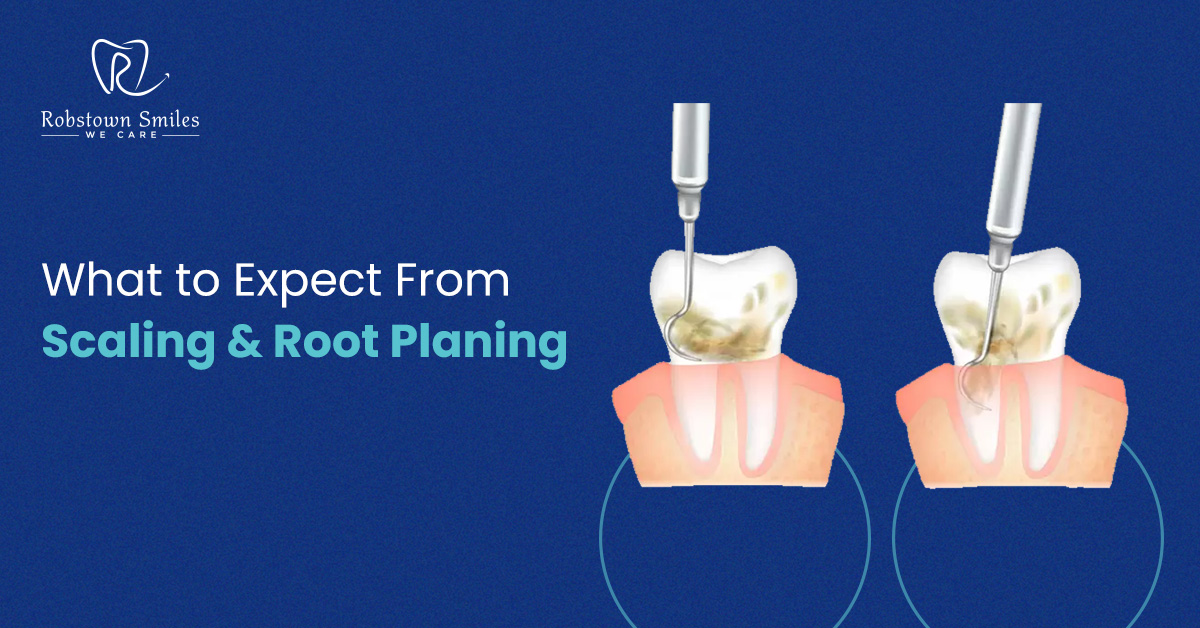To prevent oral illnesses, brush your teeth twice a day, floss, and rinse your mouth regularly. If you haven’t visited the dentist in a few years, you may have accumulated plaque from your food and drink habits, leading to a shift in the position of your teeth or gums. Gum disease occurs when plaque builds up on dental surfaces, causing inflammation of the gumline and creating pockets as the gums recede from the teeth. This can lead to foul breath and other oral health issues. To prevent these issues your dentist will perform Scaling and Root Planning.
What is Scaling and Root Planning?
To manage gum disease, tooth scaling and root planning are two processes. Tooth scaling involves scraping plaque off the tooth’s surface, while root planning smooths the tooth beneath the gum line, promoting better adhesion between bone and tissue. Patients may need one or more visits to the dentist for the scaling and planning process, depending on the severity of their condition.
Why is Scaling and Root Planning Required?
Chronic periodontal disease can lead to complications such as loose or shifting teeth, loss of bone and tissue, and eventual tooth loss. Possible causes include poor oral hygiene, smoking, ageing, hormonal changes, unhealthy diet, hereditary factors, and other health issues. Scaling and Root Planning are part of prevention and treatment of chronic periodontal disease. The conventional method for planning and scaling involves using dental instruments like the curette and scaler, with some experts using ultrasonic or laser technologies. Deep cleaning aims to reduce pocket gaps, reducing tooth, bone, and tissue loss.
At Robstown Smiles, our dentist suggests further treatment for severe and persistent cases of periodontitis, including antibacterial drugs and host modulation.
What to Expect from Scaling and Root Planning?
Pain may be common after outpatient operations, but it is not considered painless. A follow-up appointment is scheduled to assess the progress of healing and pocket reduction. Patients can discuss the procedure and medication use with their dentist, as reactions can occur with any drug or anesthetic.
Conclusion
Root planning and scaling teeth don’t hurt as much as they sound. The Scaling and Root Planning process is not painful, but the gums may become sensitive and painful. An oral antibiotic may be recommended to protect against infection. To maintain oral health, a healthy balanced diet, frequent cleanings, and returning to a regular dental care routine are recommended. Regular brushing, flossing, and rinsing habits can help prevent plaque accumulation and prevent further dental issues.

